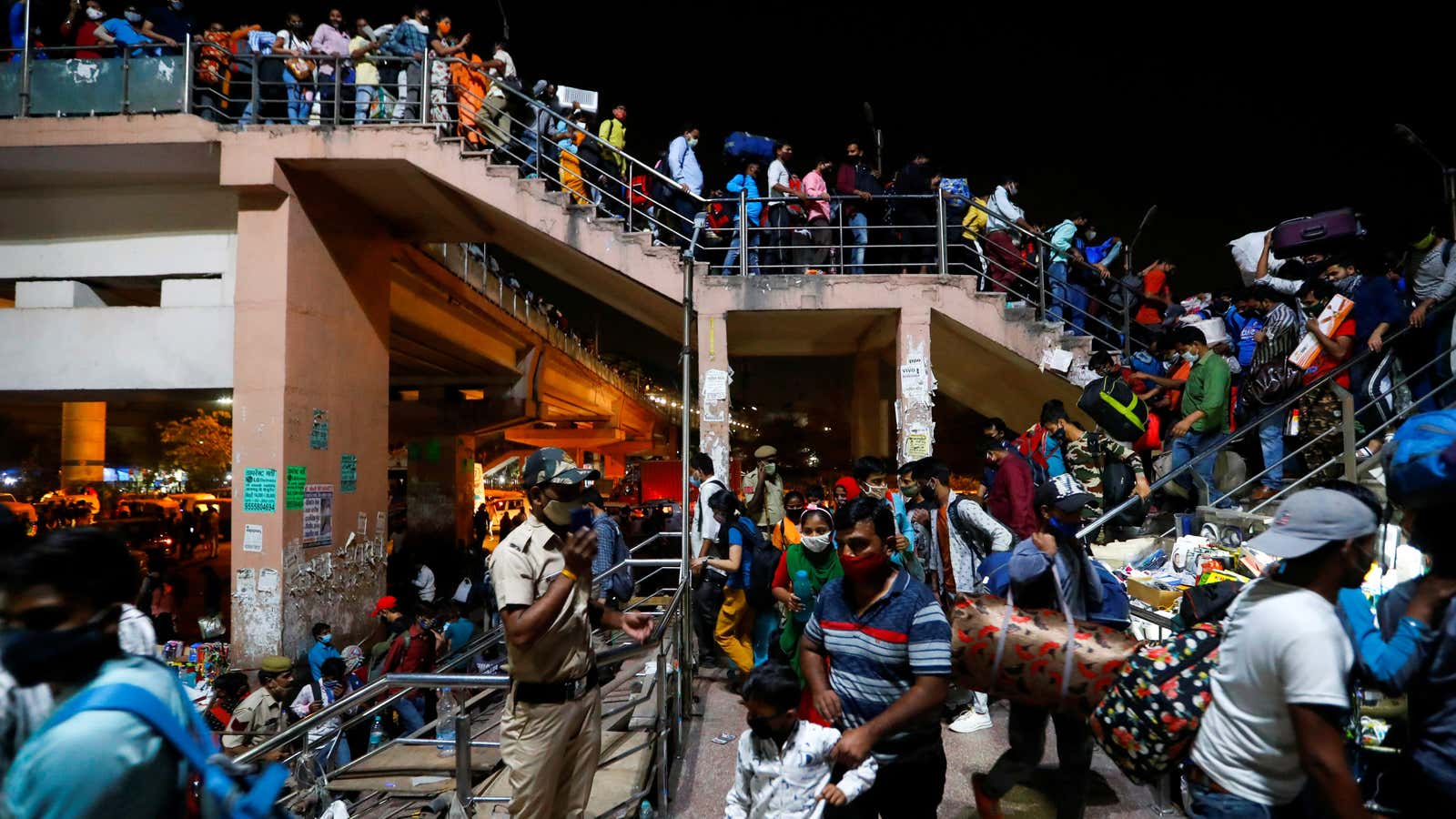With every day, the number of Covid-19 cases in India rises steeply. On April 20, when prime minister Narendra Modi addressed the nation on television, India registered nearly 300,000 new cases and 2,000 deaths. Yet Modi did not announce a national lockdown; in fact, he said: “We have to save the country from a lockdown.”
Whether Modi likes it or not, though, Indians are already in the midst of an undeclared national lockdown: a combination of local rules set by states or cities and a voluntary suspension of normalcy by citizens terrified by reports of bursting hospitals and rampant disease. The economy is already experiencing many of the setbacks that Modi fears from if he closes down the country.
But the benefits of a lockdown—a deceleration of the spread of Covid-19 and the chance of respite for overburdened doctors and nurses—are nowhere in sight, simply because there is no official, enforced lockdown at all.
So, for instance, when Delhi announced six days of restrictions beginning Monday, migrant workers began flooding to bus stations to return to their villages and towns elsewhere—a reprise of last year’s great exodus, which occurred after Modi announced a nationwide lockdown in March, 2020. The chief minister of Delhi assured his citizens that the city was shutting shop only briefly, but evidently hundreds of departing workers believe otherwise.
Domestic travel is plummeting. On April 4, 275,000 passengers flew within the country; on the day of Modi’s speech, the number was roughly 155,000. Train services are being canceled on account of “poor occupancy.” Traders are shutting down their shops voluntarily. Manufacturing orders are being downsized or canceled. Cities are calling “curfews” over nights or weekends, even though such brief enforcements have not been proven to have a lasting effect on the rate of infection.
Across the country, people are preparing for uncertainty. Before Modi began his speech, more than 600,000 people had loaded up carts on Grofers, an online grocery delivery service, waiting to check them out if a lockdown was announced. Many companies have asked their employees to go back to working from home, even if their states or cities are not experiencing a surge of disease. The prices of oil are dropping on the back of slowing demand for fuel.
A full lockdown will, of course, bring even more pain to the Indian economy. But the mounting loss of life and the national mood of despair and uncertainty are hurting the economy right now. The shutters are half-down on India already; pulling them all the way down may now be the only way to curb the disease and imagine a route to normalcy.
